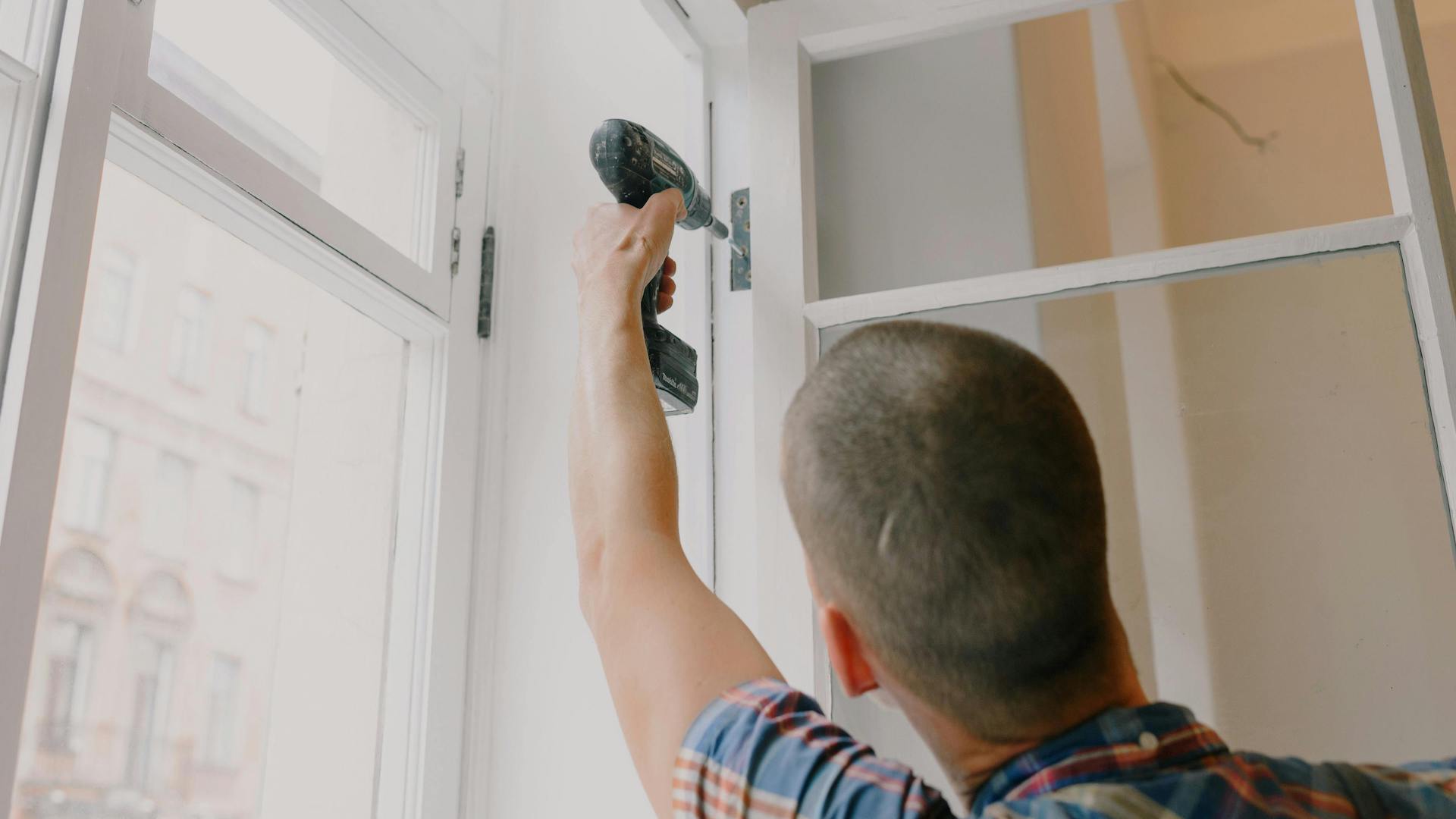Landlords should also ensure that windows and doors are secure and weatherproof, and that gutters and drains are clear and working properly.
Letting agents and landlords also have to manitain the appliances and infrastructure through which you get essential services, like boilers, radiators and water heaters. The same goes for things like showers, baths and sinks. And if you rented the home furnished, your landlord is responsible for repairing appliances and furniture when needed.
Electrical wiring and gas installations should be safe and meet current standards – you might be shown proof of this when signing your tenancy agreement.
Crucially, landlords must ensure the property meets health and safety standards. This includes installing smoke alarms, making sure that gas appliances are safe (and receive annual gas safety checks), and keeping the property free from health hazards like damp or mould, or pest infestations.
What to do if your landlord is not doing repairs
If your landlord is not fixing things when required, it’s essential to take action. Problems in the home that aren’t addressed could get worse with time and become more difficult to repair, or develop into a serious health hazard for you and anyone you live with.
Talk to your landlord
Your first step should be communicating the issue clearly and politely to your landlord. A simple conversation can often resolve the issue – most landlords aren’t keen for their properties to fall into disrepair. Be clear about the repairs needed, why they are essential, and what the impact is on your living conditions. It can be helpful for you to suggest days and times when you’ll be available for repairs to be done.
Advertising helps fund Big Issue’s mission to end poverty
If you speak in person or over the phone, document this conversation by following up with an email or a letter summarising the discussion.
You should “try to structure the negotiation as a mutual attempt to solve a problem,” according to Suzy Hershman, head of dispute resolution at mydeposits Scotland.
“Figure out ahead of time exactly you want to happen. Are you willing to compromise? What’s your bottom line?
“Try to be flexible when arranging to meet with your landlord or agent. Arrange a quiet time and place, preferably in a neutral location, where you can both express your concerns and work out an agreement.”
Complain to the letting agent
If you rent through a letting agent, they’re often the party responsible for managing repairs and should act on your behalf to get the necessary work done. If the agent fails to address the issue, you can escalate your complaint to the letting agent’s redress scheme, such as the Property Ombudsman or Property Redress Scheme.
Put it in writing
If talking doesn’t work, put your request in writing – for a second, perhaps more formal, time if you already did this after a verbal conversation. Send a letter or email to your landlord detailing the repairs needed, the dates you first reported them and any previous communications. Be sure to include photos if they help illustrate the problem. If the issue is affecting your health, speak to your doctor and ask them for a note. Keep copies of all communication in case the issue isn’t resolved and you need to show that you were trying to get it fixed.
Advertising helps fund Big Issue’s mission to end poverty
It can be tempting to try to arrange repairs yourself, but this can cause extra problems further down the line. Your landlord might not compensate you for the money you spent, and if the work done doesn’t fix the problem or makes it worse, you’ll be liable to cover the cost of follow-up repairs.
Take legal action
If, after some effort on your part to resolve the issue, your landlord is refusing repairs, you might need to consider legal action.
You could first contact your local council, who can send someone from the environmental health department to inspect the home if it’s a serious problem and compel the landlord to make repairs if they think it’s necessary. In Scotland, the First-tier Tribunal for Scotland (Housing and Property Chamber) can handle disputes about repairs.
It’s important to seek out tailored advice from housing experts if you’re unsure what your next move should be. The reality of renting in the UK is that ‘revenge’ evictions are still sometimes carried out using Section 21 notices, so it’s important to navigate the process of challenging your landlord carefully.
Keep paying your rent in full and on time, even if your landlord is not doing repairs. Not paying it will push you into rental arrears and could make your situation much more challenging, potentially resulting in eviction.
Can a landlord claim for repairs?
While landlords have an obligation to carry out repairs, they do sometimes have the right to claim for certain damages caused by tenants. Understanding what a landlord can and can’t claim is essential to avoid disputes.
Advertising helps fund Big Issue’s mission to end poverty
Landlords can claim for damages beyond normal wear and tear. That can include but isn’t limited to holes in walls from nails or screws, stains or burns on carpets, and broken fixtures or appliances.
But what’s referred to as fair wear and tear might include faded paint, minor scuffs on walls or worn carpets. Landlords can’t claim for for normal wear and tear when a tenant moves out.
If a landlord needs to make repairs for damages caused by a tenant, they may deduct the cost from the tenant’s deposit. But the deposit must be protected in a government-approved tenancy deposit protection scheme. If there is a dispute over deductions, all deposit protection schemes offer a free resolution service to make sure it’s handled fairly.
Instead, landlords might charge tenants for repairs during the tenancy. But this has to be clearly outlined in the tenancy agreement beforehand, and the landlord should provide evidence of the damage and estimates for costs involved.
They might have insurance to cover major repairs or damages, which they could claim from. But the tenant could still be liable for any excess on the policy or costs not covered by the insurance if they caused the damage.
Dealing with a landlord who is not doing repairs can be challenging and stressful. But whether it’s through direct communication, involving a letting agent or seeking legal action, tenants have options to make sure their homes stay safe and comfortable.
Advertising helps fund Big Issue’s mission to end poverty
It’s worth remembering that tenants also have a duty to look after their rented home and report any issues promptly – you could be considered liable for damage if the initial problem wasn’t your fault, but which got much worse because you failed to report it quickly.
Do you have a story to tell or opinions to share about this? Get in touch and tell us more. Big Issue exists to give homeless and marginalised people the opportunity to earn an income. To support our work buy a copy of the magazine or get the app from the App Store or Google Play.










